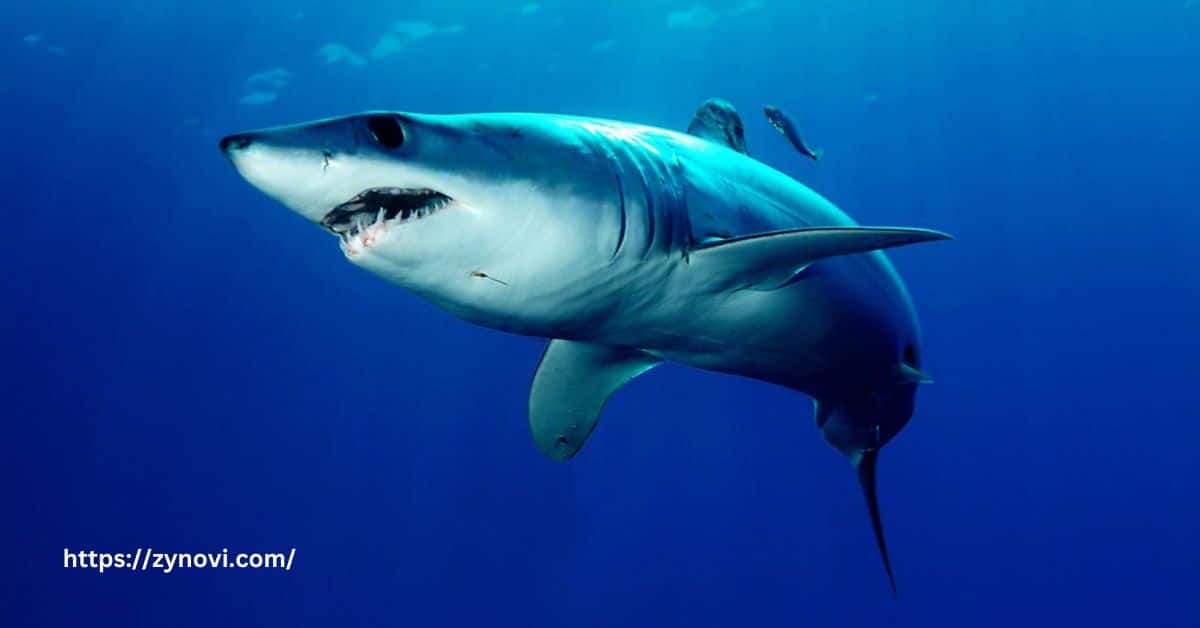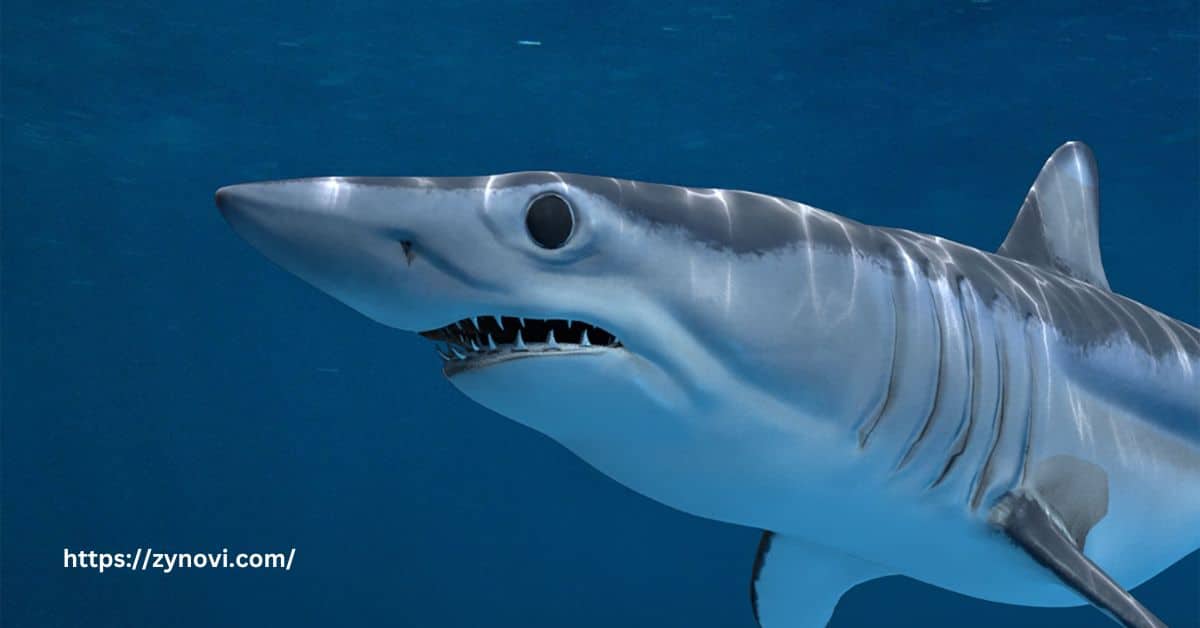Do Mako Sharks Attack Humans? Mako sharks rarely attack humans, with most incidents occurring due to mistaken identity or provocation.
This is a question that often sparks fear and curiosity among ocean enthusiasts and beachgoers alike. While Mako sharks are undeniably fascinating, the thought of encountering one in the wild can be unsettling. But how dangerous are they really?
In this article, we’ll find the truth behind Mako shark attacks, shedding light on their behavior and when they do come into contact with humans. If you’re ready to uncover what makes these powerful predators tick, read on you might be surprised by what you learn!
Overview of Mako shark
What Is a Mako Shark?
The Mako shark is one of the most remarkable predators in the ocean. Sharks have long fascinated and terrified people, especially when it comes to species like the Mako shark. Known for its speed, agility, and striking appearance, it belongs to the Lamnidae family and comes in two types:
- Shortfin Mako Shark: The faster and more commonly studied species.
- Longfin Mako Shark: Distinguished by longer pectoral fins and slightly different habitat preferences.
Shark Characteristics
| Characteristic | Details |
|---|---|
| Size | Up to 12 feet in length, weighing around 1,200 pounds |
| Speed | Shortfin Mako shark is the fastest, reaching speeds of up to 45 mph |
| Color | Sleek blue-gray body for blending into the open ocean |
| Features | Long, pointed snouts and sharp, triangular teeth for slicing through prey |
Habitat of Mako Shark
Mako sharks thrive in temperate and tropical waters, typically inhabiting the vast expanse of the open ocean. They are known to follow warm water currents, which support their active hunting behavior.
During migrations, Mako sharks may move closer to shore, offering rare chances for humans to encounter them. While they often roam near the surface, they can dive into deeper waters to pursue prey, showcasing their adaptability to varying marine environments.
Do Mako Sharks Attack Humans?

While shark attacks are a common fear, the reality is that interactions with Mako sharks are rare. Let’s explore this topic in more detail.
Incidents of Rare Shark Attacks
- Low Incidence of Mako Shark Attacks
Data from the International Shark Attack File (ISAF) shows that Mako sharks account for only a small percentage of the rare shark attacks reported globally each year. - Other Shark Species Are More Commonly Involved
Great White sharks, Tiger sharks, and Bull sharks are statistically responsible for the majority of shark-related incidents with humans, often due to their proximity to coastal areas and their size.
Why Do Mako Sharks Attack Humans?
Mako sharks rarely attack humans, and when they do, it’s often due to mistaken identity. Swimmers or surfers can resemble the shark’s natural prey, such as fish or seals, especially in murky waters or low-light conditions.
Additionally, if a Mako shark feels threatened or cornered, it may display defensive aggression as a reaction, rather than actively targeting humans.
Are Mako Sharks Aggressive?
Mako sharks, known as apex predators, are not inherently aggressive toward humans and rarely pose a direct threat. Their high-speed hunting skills are focused on catching prey like tuna, mackerel, and squid, which are staples of their diet.
However, when provoked or threatened, they may display defensive aggression. Despite their predatory nature, Mako sharks usually avoid human interaction, as their behavior is primarily driven by survival rather than hostility toward people.
Documented Incidents
- Rare Cases of Mako Shark Bites
While uncommon, there have been a few documented cases of Mako sharks biting humans. These events often occur during interactions like fishing trips. - Accidental Provocation
Most incidents happen when Mako sharks feel threatened or provoked, such as being hooked or handled by anglers. - Competition for Bait
Some bites occur when Mako sharks compete for bait or mistakenly target fishing equipment, leading to unintentional human encounters.
How to Minimize the Risk of Mako Shark Attacks?
To minimize risks, follow these preventive measures:
- Stay in Shallow Waters
Sharks, including Makos, are less likely to be found in shallow areas, reducing the chance of encounters. - Avoid Swimming at Dawn or Dusk
These are peak feeding times for sharks, making them more active and increasing the risk of mistaken identity. - Avoid Wearing Shiny Jewelry
Shiny objects can resemble fish scales, potentially attracting a shark’s attention as they hunt for prey. - Exercise Caution While Fishing or Spearfishing
Struggling fish and discarded bait can lure sharks to the area, making it essential to remain vigilant.
Mako Shark Diet and Hunting Behavior

The diet of Mako sharks reveals their role as skilled hunters in the marine food chain.
- Fish
Mako sharks primarily feed on fish such as tuna, mackerel, and swordfish, which provide essential nutrients to fuel their high-energy hunting. - Squid
Squid is also a significant part of their diet, offering a rich, high-energy food source that complements their fish consumption. - Apex Predator Behavior
As apex predators, Mako sharks use their incredible speed and agility to ambush and capture prey with precision, making them effective hunters in the ocean’s food chain.
Hunting Strategies
Mako sharks use their sharp, triangular teeth and unmatched speed to chase down and capture prey. Their agility in the water allows them to quickly close in on targets like tuna and swordfish.
In some cases, they even breach the surface during hunts, leaping out of the water to surprise their prey. This behavior highlights their exceptional athleticism and hunting prowess, making them one of the ocean’s most skilled predators.
Mako sharks rely on their sharp teeth and incredible speed to chase down prey. They often breach the surface during hunts, a behavior that showcases their athleticism.
Protecting Mako Sharks: Conservation Efforts
Are Mako Sharks Endangered?
Yes, Mako sharks are classified as endangered by the International Union for Conservation of Nature (IUCN). This status is primarily due to overfishing, where they are targeted for their meat and fins, and habitat loss caused by human activities. Conservation efforts are critical to protect their populations and ensure their survival.
Threats to Mako Sharks
- Overfishing: Mako sharks are targeted for their meat and fins, particularly in the shark fin trade.
- Bycatch: They are often accidentally caught in fishing nets.
- Climate Change: Altered ocean temperatures and currents impact their habitat and prey availability.
Conservation Efforts
Efforts to protect Mako sharks include:
- Fishing regulations to limit catches.
- Creation of protected marine areas.
- International agreements like the Convention on International Trade in Endangered Species (CITES).
- Awareness campaigns highlighting the importance of sharks in marine ecosystems.
FAQs
Will a Mako shark attack you?
Mako sharks are generally not aggressive toward humans, and attacks are rare, typically occurring due to mistaken identity.
Which shark attacks humans most?
Great White sharks, Tiger sharks, and Bull sharks are responsible for the majority of unprovoked shark attacks on humans.
Can you swim with Mako sharks?
Swimming with Mako sharks is not recommended due to their speed and hunting instincts, but divers may encounter them in controlled, professional settings.
Why were Mako sharks banned?
Mako sharks have been banned or regulated in certain areas due to overfishing, conservation concerns, and their endangered status.
Conclusion: Do Mako Sharks Attack Humans?
While Mako sharks have the capability to harm humans, such incidents are extremely rare. They are more likely to flee than fight unless provoked or confused. By understanding their behavior and taking precautions, humans can coexist safely with these majestic predators.
Ultimately, the focus should shift from fear to appreciation for Mako sharks. Their role as apex predators helps maintain the balance of marine ecosystems, and efforts to protect them are crucial for the health of our oceans.










